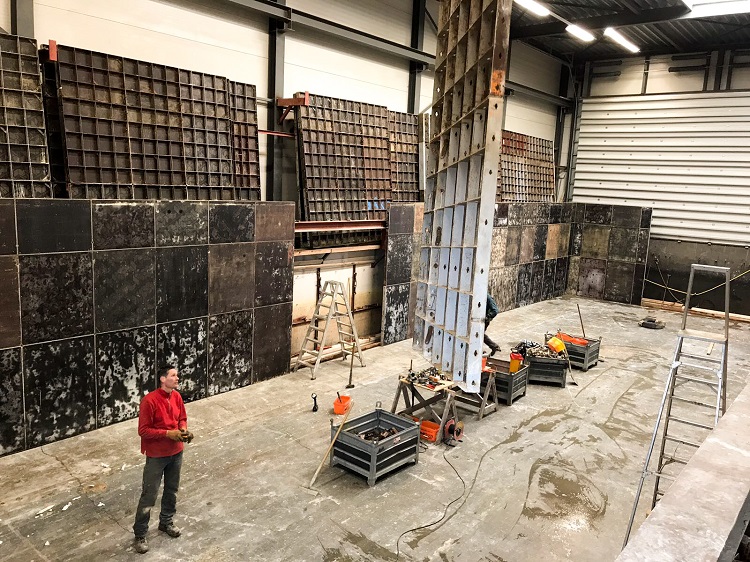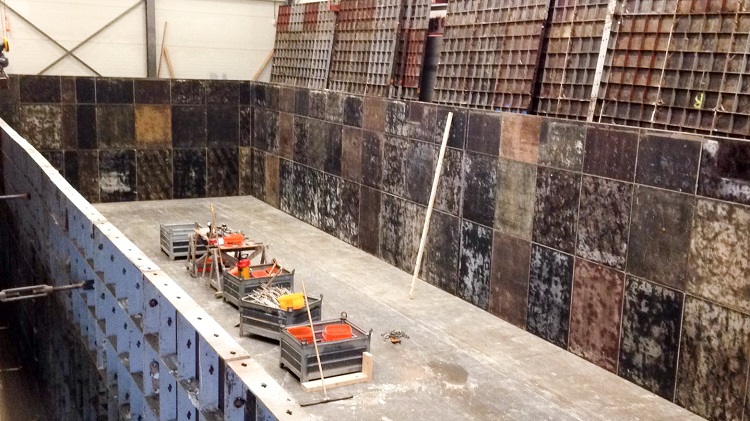Construction of Rotterdam's Floating Farm Underway
Construction of Rotterdam's floating farm is underway with the construction of the three concrete floats that will form the foundations for the world’s first floating dairy farm.
The floating farm, to be located at Merwe4Haven in Rotterdam, is a self-supporting floating farm that can accommodate 40 dairy cattle. It will provide the city with fresh dairy products every day.
The project team is led by Peter van Wingerden, Carel de Vries and Johan Bosman of property development company Beladon who see it as a way of bringing food production very close to the consumer when there is limited available space on land to do so. The designers aim to bring people into closer contact with the natural value of agriculture and horticulture, livestock farming and a healthy diet. The hold of the floating farm is transparent so that its operation can be viewed to boost education about healthy foods.
Production is circular on the farm, with cycles of nutrients, energy and water closed as much as possible to reduce waste.
The pasture for the cattle is grown under LED light with seeds germinated on special beds in short cycles. This production can continue throughout the year, enabling the cattle to eat fresh food every day. Their diet can be supplemented with residual flows from the urban food and beverage industry, and, if necessary, with hay and straw from the nearby countryside.
The animals’ urine immediately sinks through the special pasture floor, while the (dried) manure remains. A special drainage system transports the urine to an air-tight storage facility, and the solid manure is continuously removed by a manure robot and stored separately. The urine can be used in city farming as a liquid fertilizer. The solid manure can be used, after fermentation and collection of biogas, as compost for soil enrichment and fertilization in city farming and the production of food for the animals. Rain water is collected to supply drinking water.
The pasture floor is an essential component of the design and has been made to be as comfortable as a meadow. The animals can find shade beneath planted trees and vines, and the roof of the cow garden can be opened. The cows themselves determine when they want to be milked by milking robot. This creates a system of free choice, in which the cow herself determines whether she wants to be inside or outside, wishes to eat, wants to be milked or wants to lie under the trees.
In the long term, the designers of Floating Farm see it as a solution to changing trade patterns. Currently Rotterdam is an important port city and a container and oil shipment hub. However, with a global change in energy production, energy processing, 3D Printing and IT, Rotterdam cannot continue to solely depend on its harbor, they say.
van Wingerden said: “We believe that building on water is the way ahead in a country with a changing climate and ever increasing urbanization. Floating Farm is the perfect scaleable solution for cities such as Rotterdam, with a lot of space on the water. In addition, we see huge opportunities for this prototype all over the world. We will be building with all due speed in the months ahead, so that we can welcome our first cattle later this year.”

that matters most
Get the latest maritime news delivered to your inbox daily.


